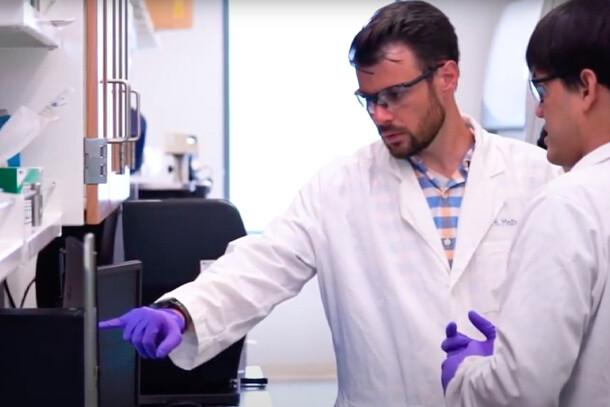COVID-19 vaccines have been tested, validated and administered to millions of people around the world. But in some countries, the vaccines have yet to arrive in great enough numbers.
One significant hurdle is that the vaccines must be stored between 36 and 46 degrees Fahrenheit to retain their full efficacy, according to the Centers for Disease Control. To ensure the proper temperature, the vaccines need a refrigerated supply chain, also known as a cold chain, as they are distributed across the globe.
“If they are in warm temperatures, COVID vaccines and other medications are susceptible to degradation, which means they lose potency,” said Medina, who heads the Medina Group Precision Therapeutics and Bioresponsive Materials Lab at Penn State. “And the cold storage supply chain is expensive to maintain, with several transport steps necessary from the manufacturer to the distributer to the provider facility.”
To address that challenge, Medina and his team plan to develop fluorochemical dispersants, known as “FTags,” which coat the proteins within the vaccine liquids to stabilize them thermally.
“The FTags dissolve the proteins in a fluorine-based liquid, which yields proteins that we believe may be stable at elevated temperatures, without compromising their structure or function,” Medina said. “When dissolved in the fluorine-based liquid, the proteins also are immune to contamination by microorganisms and enzymes.”
Fluorochemicals are used in a range of applications, such as in making surfaces resistant to scratches and chemical degradation, as in the case of non-stick cookware.
“This will allow access to medications in places where currently there is not,” Medina said. “For example, a soldier at war could be exposed to a harmful chemical agent. A fluorochemical-coated protein, which can be carried without refrigeration, could neutralize that agent immediately. This is part of DARPA’s interest in supplying this grant.”
The grant is part of DARPA’s Young Faculty Award program, which provides funding, mentoring and networking opportunities to faculty early in their careers who plan to focus their research on Department of Defense and national security interests.
In 2020, Medina published a study in ACS Nano on delivering therapeutic medications directly to a precise area of the body through an acoustically sensitive carrier, guided by ultrasound. The proposed DARPA-funded study is a spin-off of that study’s findings.
“Janna Sloand, my former grad student who recently defended her doctoral research, came up with the coating technology in our last study,” Medina said. “It dovetails nicely with our new study, which will use those same coatings to take on the limitations of the cold chain.”
###
Media Contact
College of Engineering Media Relations
[email protected]





